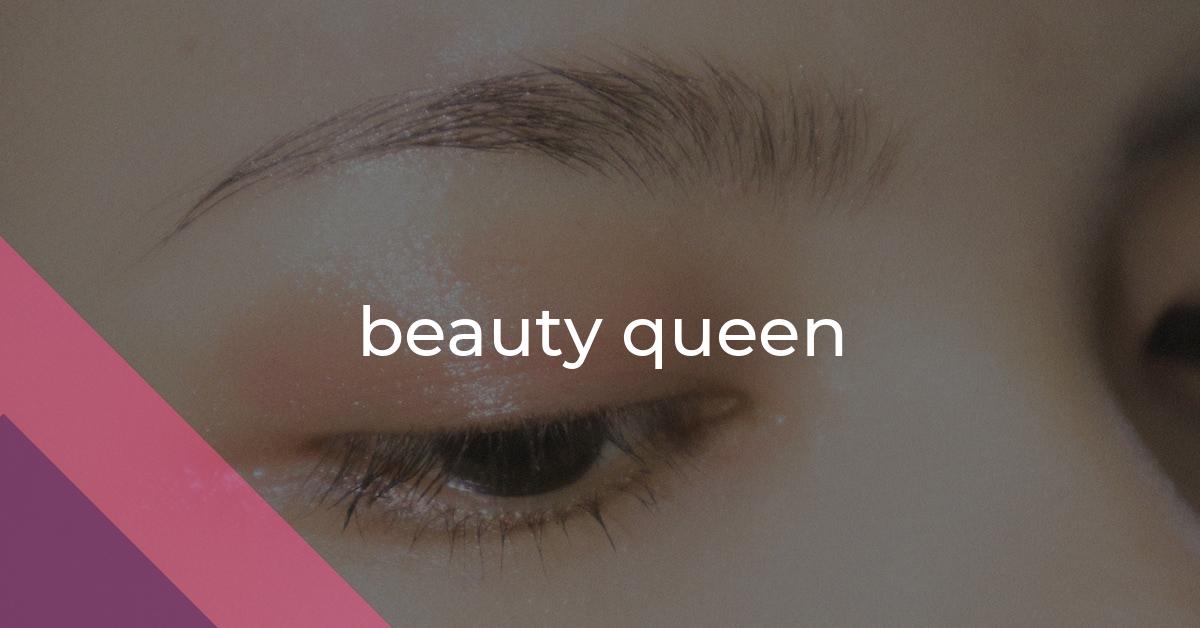beauty queen: Idiom Meaning and Origin
What does ‘beauty queen’ mean?
The idiom "beauty queen" refers to a woman who is exceptionally beautiful and often participates in beauty pageants.

Idiom Explorer
The idiom "woman among women" is used to describe a woman who stands out and excels among other women, often implying that she is extraordinary or exceptional in some way.
An idiom meaning an individual or thing that is the most impressive or influential among others in a given field or situation.
The idiom "just another pretty face" is used to describe someone who is attractive but lacks intelligence, skills, or substance. It implies that the person's appearance is their main or only attribute, often used in a dismissive or derogatory manner.
"Jewel in the crown" refers to a valuable or prized possession that stands out from the rest. It symbolizes something exceptional or superior within a larger context.
The idiom "in all one's glory" means to be seen or presented in one's most impressive and grandiose state, showcasing all of one's achievements and qualities.
The idiom "ice queen" refers to a woman who is perceived as cold, detached, and unemotional, often controlling her emotions and interactions with others. This term is typically used to describe someone who is aloof, distant, or unapproachable in social or professional settings.
The idiom "good looker" refers to a person who is physically attractive or visually pleasing.
The idiom "God's gift to women" is used to describe a man who believes he is incredibly attractive or desirable to women. It implies that he sees himself as a special or superior gift from God to women.
The idiom "fit for a king" means something that is of exceptional quality or luxury, suitable for royalty.
Unveiling Queens
The idiom "beauty queen" is a familiar phrase in the English language, known for its association with beauty pageants and the women who participate in them. It is used to describe a woman who is exceptionally beautiful or who possesses qualities typically associated with attractiveness and physical charm. The phrase has its roots in the world of beauty pageants, which have a long history and cultural significance in various societies.
Beauty pageants, also known as beauty contests or beauty competitions, have been a part of human culture for centuries. They evolved from ancient traditions of selecting the most beautiful women in a community to represent their region or even their country. In the United States, beauty pageants gained widespread popularity in the early 20th century and have continued to be a significant part of American culture ever since.
A beauty queen, as the idiom suggests, refers to a woman who has achieved the highly coveted title of being the winner in a beauty pageant. These competitions typically assess contestants based on their physical appearance, poise, personality, and talents. Winning a beauty pageant can bring fame, recognition, and often leads to opportunities in modeling, acting, or other fields related to the entertainment industry.
The idiom "beauty queen" has also become synonymous with notions of superficiality, objectification, and unrealistic beauty standards. Critics argue that beauty pageants emphasize physical appearance over other qualities, reinforcing harmful stereotypes and promoting a narrow definition of beauty. Others contend that pageants can empower women by providing a platform for self-expression, promoting confidence, and supporting charitable causes.
In popular culture, the image of a beauty queen has been depicted in various ways. Media often portrays beauty queens as perfectly groomed women with flawless appearances, conforming to societal expectations of beauty. However, there have also been efforts to challenge these stereotypes and redefine the image of a beauty queen to include women from diverse backgrounds, body types, and abilities.
While the idiom "beauty queen" primarily refers to individuals who have won beauty pageants, it has also been used metaphorically to describe exceptional beauty or attractiveness in everyday language. It can be employed to praise someone's physical appearance or to emphasize the attractiveness of a particular person or thing. The idiom's usage is not limited to women and can be applied to men as well, although it is more commonly associated with female beauty.
The idioms "beautiful people," "beauty sleep," "woman among women," and "good looker" are all related to the idiom "beauty queen." When we refer to someone as "beautiful people," we mean that they possess exceptional physical beauty and charm, similar to a beauty queen. "Beauty sleep" refers to the importance of getting enough sleep for maintaining youthful looks and overall physical attractiveness. It is akin to the dedication and preparation that beauty queens undergo to maintain their appearance.
The idiom "woman among women" is often used to describe a woman who stands out among her peers in terms of beauty, grace, and overall appeal. This idiom is closely related to the concept of a beauty queen, as it highlights the exceptional qualities and attractiveness of a particular woman. Similarly, the phrase "good looker" is used to describe someone who is visually appealing and attractive, just like a beauty queen.
The idiom "beauty queen" originated from the world of beauty pageants and is used to describe a woman who is exceptionally beautiful or possesses qualities associated with attractiveness. It has become a part of popular culture and carries both positive and negative connotations. While the idiom may conjure images of physical perfection, it also sparks conversations about beauty standards, inclusivity, and gender roles. The phrase captures the enduring fascination with beauty and the complexities surrounding its perception in society.
Example usage
Examples of how the idiom "beauty queen" can be used in a sentence:
- "She walks with such grace and poise, she could easily be mistaken for a beauty queen."
- "The local beauty queen visited the school to inspire the students with her success story."
- "Although she didn't win the pageant, she will always be a beauty queen in our eyes."
More "Culture" idioms



